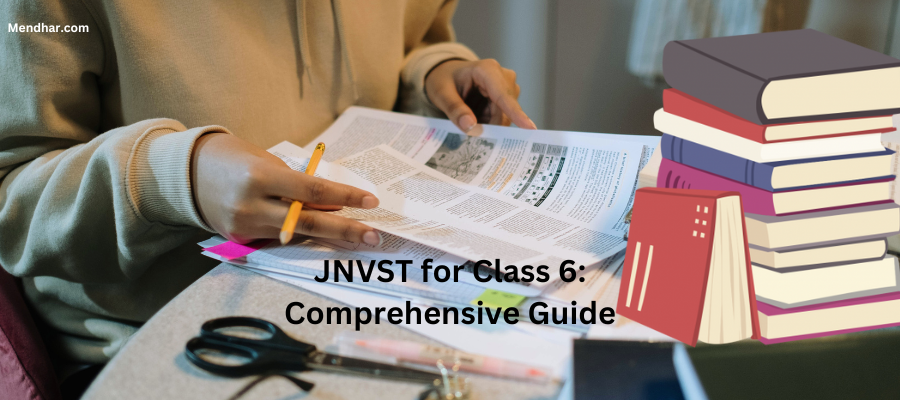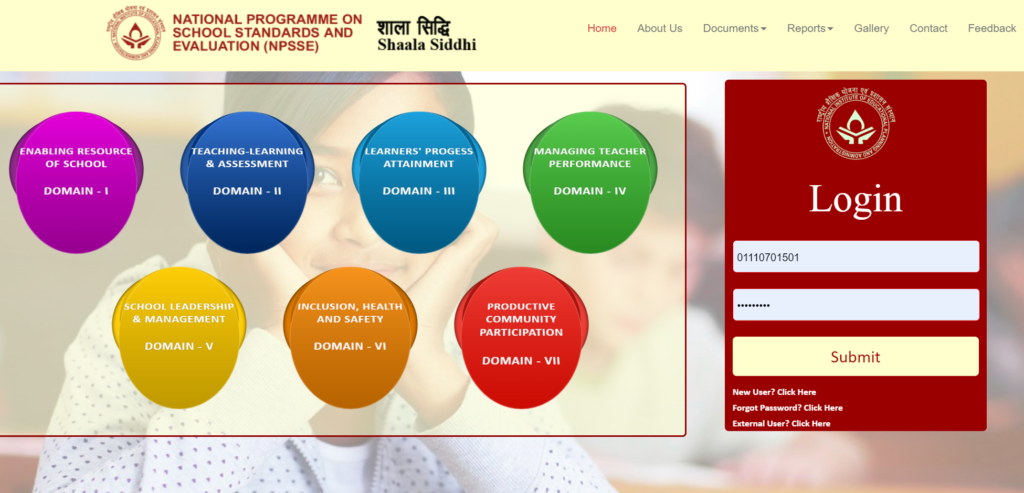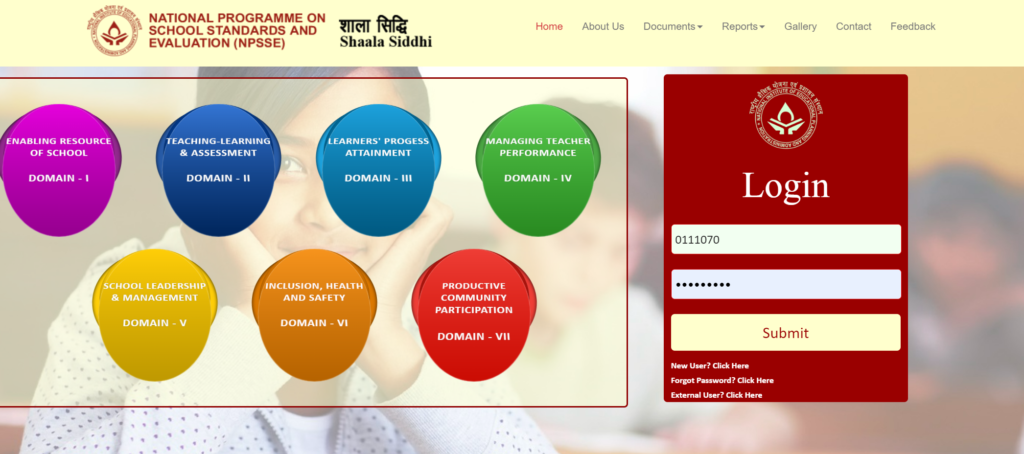Table of Contents
ToggleJNVST Class 6: Comprehensive Guide

Introduction to JNVST for Class 6
The esteemed Jawahar Navodaya Vidyalayas (JNVs) stand as a beacon of educational equity, driven by a noble mission to cultivate young minds in the rural heartlands of India. With an unwavering commitment to nurturing talent, these institutions strive to offer quality education to meritorious students, irrespective of their social or economic backgrounds. Established with a vision to bridge the educational divide, JNVs hold a profound purpose: to bring forth the latent potential of rural youth and provide them with a platform to excel on both national and global stages.
In furtherance of this mission, the JNVST for Class 6 is conducted annually, serving as the gateway for deserving students into the esteemed corridors of these schools. This examination, crafted with meticulous precision, is an instrument of hope for thousands of aspirants and their families, as it promises an opportunity to receive unparalleled educational guidance, moral values, and a comprehensive curriculum designed to foster holistic development. The JNVST embodies a robust yet impartial selection process, ensuring that students from diverse backgrounds are granted the chance to fulfill their academic aspirations in a nurturing environment.
Understanding the JNVST class 6 Exam
The JNVST Class 6 exam is a national-level entrance test designed to identify academically gifted students and provide them with access to free, quality education. With thousands of students competing, this exam evaluates students’ abilities in three key areas: mental ability, language, and arithmetic.
Who Can Apply?
- Students currently in Class 5 in recognized schools.
- Students from rural and urban backgrounds who meet specific eligibility criteria.
JNVST Class 6 Exam Pattern
To prepare effectively for the Jawahar Navodaya Vidyalaya Selection Test (JNVST) for Class 6, understanding the exam pattern is crucial. The exam is designed to evaluate a range of skills, from cognitive abilities to language proficiency. Below is a structured breakdown of the exam sections:
| Section | Description | Number of Questions | Focus Areas |
|---|---|---|---|
| Mental Ability Test (MAT) | Assesses cognitive skills, logical reasoning, and problem-solving abilities. | 40 | Pattern recognition, spatial awareness, analogies, sequences |
| Arithmetic Test | Tests numerical ability and foundational mathematical concepts. | 20 | Basic arithmetic, number operations, fractions, time, and distance |
| Language Test | Evaluates comprehension and language skills in either Hindi or English. | 20 | Reading comprehension, vocabulary, grammar, sentence formation |
Key Exam Details
- Total Questions: 80
- Total Duration: 2 hours
- Marking Scheme: Each correct answer is awarded 1 mark; there is no negative marking.
Each section is meticulously crafted to assess distinct abilities, ensuring a well-rounded evaluation of a student’s aptitude. The Mental Ability Test (MAT) emphasizes cognitive reasoning, helping to gauge the candidate’s problem-solving skills and logical thinking. The Arithmetic Test covers foundational math concepts essential for higher learning, while the Language Test assesses comprehension and linguistic capabilities, further ensuring students possess a sound understanding of the chosen language.
This holistic approach allows JNVST to select students who are not only academically talented but also capable of analytical thinking and effective communication, embodying the mission of Jawahar Navodaya Vidyalayas to nurture well-rounded individuals from diverse backgrounds.
Syllabus for JNVST Class 6
The Jawahar Navodaya Vidyalaya Selection Test (JNVST) syllabus for Class 6 is thoughtfully designed to evaluate fundamental skills in three core areas: logical reasoning, arithmetic, and language. Each of these domains is essential for academic success and provides a solid foundation for future studies at Jawahar Navodaya Vidyalayas (JNVs). The syllabus encompasses a range of topics that test a student’s aptitude in reasoning, quantitative ability, and linguistic competence.
1. Mental Ability
The Mental Ability section is structured to assess a student’s cognitive skills, particularly their logical reasoning and pattern recognition abilities. Key topics include:
- Puzzles: Tests problem-solving skills and the ability to follow complex instructions or clues.
- Figures and Visual Patterns: Involves questions based on visual sequences, identifying similarities or differences, and recognizing patterns among various figures.
- Analogies: Focuses on identifying relationships between pairs of objects, words, or numbers to determine analogous relationships.
- Coding-Decoding: Challenges students to decipher codes and patterns, an exercise in critical thinking and logical deduction.
- Pattern Recognition: Tests the ability to identify recurring sequences or arrangements, which is essential for mathematical and logical skills.
This section is crucial for developing mental agility and is aimed at gauging the students’ logical thought processes and their ability to deduce and analyze information accurately.
2. Arithmetic
The Arithmetic section assesses foundational mathematical skills and numerical aptitude. This section covers:
- Basic Calculations: Includes fundamental operations such as addition, subtraction, multiplication, and division.
- Number Series: Tests students’ ability to identify and extend numerical patterns, a skill essential for grasping advanced mathematical concepts.
- Fractions and Decimals: Examines students’ understanding of fractions, decimals, and their applications in real-world scenarios.
- Distance and Time: Incorporates basic problems related to speed, distance, and time, enhancing logical application in problem-solving.
- Word Problems: Challenges students with contextual mathematical questions that require reading comprehension and analytical skills to extract and solve relevant data.
The topics in this section focus on essential arithmetic skills that form the foundation for advanced mathematical studies, preparing students for more complex quantitative challenges.
3. Language (Hindi or English)
The Language section evaluates comprehension and proficiency in either Hindi or English, focusing on the students’ ability to understand and communicate effectively. Key topics include:
- Reading Comprehension: Involves reading passages followed by questions to test understanding, inference, and interpretation.
- Sentence Formation: Assesses the student’s ability to construct grammatically correct and meaningful sentences.
- Grammar: Tests fundamental grammar skills, including verb usage, tense, prepositions, conjunctions, and sentence structure.
- Vocabulary: Covers synonyms, antonyms, word meanings, and contextual usage of words, aimed at enriching students’ lexicon.
This section is essential for developing communication skills, comprehension abilities, and language proficiency. Mastery in language skills is vital not only for academic excellence but also for overall personal development, as it enables students to express ideas clearly and understand complex information.
Preparation Tips for JNVST Class 6
Preparing for JNVST can seem challenging, but with a structured approach, success is achievable.
- Understand the Exam Pattern and Syllabus: Familiarize yourself with the exam format and syllabus topics to know what to focus on.
- Create a Study Plan: Set a daily and weekly study schedule covering all three sections—Mental Ability, Arithmetic, and Language.
- Focus on Mental Ability: Since the Mental Ability Test carries the most weight, dedicate sufficient time to puzzles, pattern recognition, and logical reasoning exercises.
- Revise Basics in Math and Language: For arithmetic, review Class 5 mathematics concepts. For language, work on grammar, vocabulary, and comprehension.
- Practice with Mock Tests: Taking timed mock tests helps build speed and familiarity with question types.
Best Books and Resources for JNVST Class 6 Preparation
Selecting the right study materials can significantly impact JNVST preparation. Here’s a list of recommended resources:
- Mental Ability: Mental Ability for Class 6 by Arihant or R.S. Aggarwal’s Reasoning Book offers comprehensive mental ability exercises.
- Arithmetic: Navodaya Vidyalaya Entrance Exam Book for Class 6 by RPH Editorial Board is excellent for arithmetic practice aligned with JNVST.
- Language Skills: Language sections can be prepared using Class 5 NCERT language textbooks or Language Proficiency for Class 6 Navodaya by Team of Experts.
Mock Tests and Sample Papers
Mock tests and sample papers are invaluable tools for success in the JNVST. Regular practice with these helps simulate the actual exam environment, making students more comfortable with time constraints.
Where to Find Sample Papers?
- Navodaya Vidyalaya Samiti’s Official Website: Periodically uploads sample papers.
- Educational Websites: Many offer free and paid practice papers.
- Bookstores: Look for comprehensive JNVST preparation books with sample papers included.
Conclusion:-
Preparing for the Jawahar Navodaya Vidyalaya Selection Test for Class 6 is an important journey that demands dedication, focus, and a well-thought-out strategy. With free, high-quality education as a reward, the effort put into this exam can open the doors to exceptional opportunities for young learners. By understanding the exam pattern, practicing regularly, and approaching the exam with confidence, students can increase their chances of securing a place in one of India’s prestigious JNV schools. For parents and students alike, this opportunity represents a pathway to brighter academic futures and holistic personal growth.
FAQs
1. How many times can a student attempt the JNVST for Class 6?
- Each student is allowed only one attempt at the JNVST Class 6 exam. Reapplying is not permitted.
2. Are there fees for JNV education?
- Education at JNVs is free, including textbooks, uniforms, and meals. However, a nominal fee may be charged for students in certain income categories.
3. Can students from urban areas apply?
- Yes, but only 25% of seats are reserved for urban students, with the majority allocated to rural applicants.
4. What happens after selection?
- After passing the exam, selected students undergo a medical examination and document verification before admission to JNV.
5. How to find official announcements and updates?
- All official information and announcements are available on the Navodaya Vidyalaya Samiti’s website. Students and parents should frequently check for updates to stay informed.
This guide provides everything you need to understand, prepare for, and succeed in the JNVST Class 6 exam. Good luck to all aspiring candidates!


